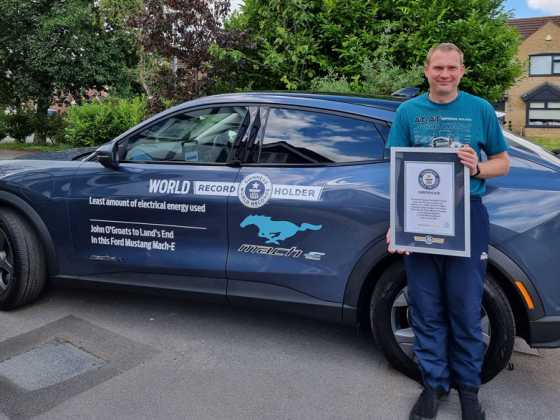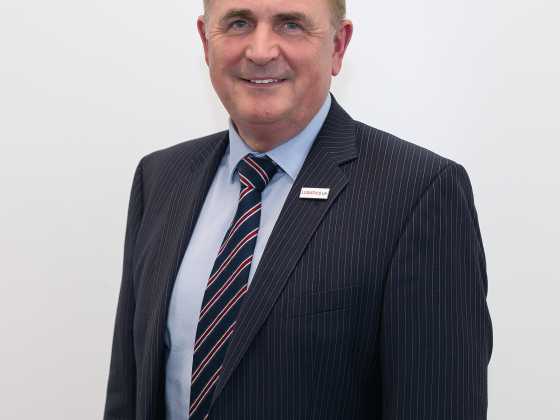Gearing up for the GreenFleet Awards
The 2014 GreenFleet Awards, coming to the Heritage Motor Centre motor museum in Warwickshire on October 30, aims to shine a spotlight on the efforts of fleet managers and vehicle manufacturers.
 With the need to curb vehicle emissions becoming ever more pressing, the fleet industry is gearing up for an event that recognises the innovative measures being taken to reduce the impact transport has on the environment. The 2014 GreenFleet Awards takes place at the Heritage Motor Centre motor museum in Gaydon, Warwickshire on October 30, and will celebrate the groundbreaking work being done by both private and public sector fleets, as well as suppliers, vehicle manufacturers and other organisations. The shortlist for this year’s awards can be viewed on the event website.
With the need to curb vehicle emissions becoming ever more pressing, the fleet industry is gearing up for an event that recognises the innovative measures being taken to reduce the impact transport has on the environment. The 2014 GreenFleet Awards takes place at the Heritage Motor Centre motor museum in Gaydon, Warwickshire on October 30, and will celebrate the groundbreaking work being done by both private and public sector fleets, as well as suppliers, vehicle manufacturers and other organisations. The shortlist for this year’s awards can be viewed on the event website.
This year’s event will be hosted by Quentin Willson, a renowned motoring journalist and longstanding spokesperson for drivers’ rights who has used his platform to boost public perceptions of alternative fuel vehicles (AVFs). A patron of the Hydrogen Trust, Quentin has consulted with the Office for Low Emission Vehicles and has frequently made the case for electric and hyrdogen cars as a sound business investment that makes sense for the environment.
Last year’s awards were held at Arsenal’s Emirates Stadium on October 11 and saw a range of winners across 18 categories. The award for Outstanding Achievement went to Andy Eastlake, managing director of the Low Carbon Vehicle Partnership, for his‑commitment and hard work towards low‑carbon motoring, while the BMW won the Industry Innovation Award for its first electric vehicle, the i3, launched in 2013.
Last year’s winners
Abel & Cole took home last year’s Private Sector Fleet of the Year award in the small to medium fleet category, sponsored by Route Monkey. The company delivers organic produce to 50,000 customers weekly, running 142 Iveco Daily Euro IV and V chassis cabs with bespoke bodies across nine depots driving 3.9 million miles a year. After trials of alternative fuels (PPO, LPG, and CNG) using telematics to monitor performance, the company concluded that the driver is the critical factor in fleet efficiency, and devised a programme to influence and reward driver behaviour aiming to increase MPG from 20.5 to 25 in a twelve month period. This was surpassed and has continued to rise – fuel as a percentage of sales was two per cent in 2012 and fell to 1.6 per cent in 2013. A big part of this saving (£200k) is set aside as a driver performance bonus. Driver trainers have been introduced to deliver SAFED training techniques. Speeding and idling are monitored through telematics and fed back to drivers through weekly meetings. Vehicles are also speed restricted and feature an agile gearbox which also helps improve efficiency.
Stobart Group scooped the award for Private Sector Fleet of the Year (medium to large fleet), sponsored by Alphabet. The company pioneered several environmental initiatives, such as a modal shift from road to rail which cut total Group fuel usage by 20 per cent. A stringent Vehicle Replacement Programme ensures that its fleet benefits from the latest technological advances, and in 2013, 99 per cent of the company’s vehicles met with Euro V emissions legislation. The ‘Driving Fuel Efficiency’ initiative offers cash incentives to reward drivers for greener driving – the system records and transmits in real time four key causes of raised fuel consumption. The Group also made the first-ever UK delivery using its new high-volume ‘Enviro‑trailer’ this year. The extended trailers allow operators to carry higher volumes of goods whilst remaining within current maximum weight and turning circle regulations.
The award for Private Sector Fleet Manager of the Year, sponsored by Lightfoot, went to Nick Davies, head of transport operations at Sainsbury’s. Despite growth, in 2013 Sainsbury’s logistics fleet travelled almost eight million less kilometres than in 2010. Nick Davies oversaw the extension of Sainsbury’s dual-fuel fleet to 51 vehicles, which, operating on a combination of diesel and bio-methane produced from rotting organic material in landfill, can save up to 25 per cent in emissions. Each dual-fuel vehicle saves around 41 tonnes of CO2 each year. 2013 also saw trials of the world’s first naturally refrigerated trailer to transport chilled and frozen goods. The system was initially developed for deep sea containers and completed a rigorous sea trial programme in 2012. The trial was part of the retailer’s review of its transport refrigeration gas and work to reduce its carbon footprint, which includes converting all its stores to natural refrigeration by 2030.
Public sector fleets
Islington Council was presented with the 2013 Public Sector Fleet of the Year (small to medium fleet) Award, sponsored by Automotive Leasing,
A previous GreenFleet Award winner, Islington Council managed to go on blazing a public sector trail and in 2013 took fleet, workshop and refuse/recycling services back in house to obtain direct control. The fleet of 340 vehicles was streamlined to remove six 26-tonne refuse vehicles with no detriment to the service provided. The first phase of a new replacement programme brought in 21 new tippers with hybrid drive systems and driver behaviour monitoring systems, creating the largest local authority fleet of hybrid light commercial vehicles in the UK. Islington’s fleet of 17 electric vehicles also continues to grow having negotiated big discounts directly with a manufacturer. The cars are delivering the equivalent of 300 miles per gallon and cost just £1.80 to charge overnight with the larger commercials costing £8 per charge. The council continues to work closely with Cenex, OLEV and Transport for London to trial new technology.
West Lothian Council celebrated double success last year, taking home Public Sector Fleet of the Year Award (medium to large fleet), sponsored by Enterprise Rent-A-Car, and Public Sector Fleet Manager of the Year, sponsored by Lex Autolease. The Council operates a fleet of around 1,000 vehicles ranging from refuse collection, pool cars, buses, vans, electric cars and sweepers. No vehicles have engine technology older than Euro 5, and all vehicles up to 3.5 tonnes to have EEV engines with stop start technology where available. The Council estimates that its green transport initiatives had achieved savings of £1.2 million by autumn 2013. The introduction of telematics is expected to deliver a further 10 per cent in fuel savings as well reduced repair and accident costs.
The Council’s fleet manager Joe Drew scooped Public Sector Fleet Manager of the Year for his 40 year service to the Council, being involved in various alternative fuels and carbon reduction schemes. These range from Landi Hartog gas conversions in the 70s through to natural gas powered refuse vehicles in the 90s. As a Council, West Lothian has adopted diverse measures to reduce emissions throughout the whole fleet, including re-mapped engines in Euro 5 HGVs to make them EEV compliant and the introduction of speed limiters to reduce fuel consumption and CO2 by 10 per cent. As well as maintaining a number of pure EVs on its fleet, West Lothian Council also puts Vauxhall’s range‑extending Ampera to good use.
Innovative Vehicles
BMW’s all-electric i3 scooped last year’s Industry Innovation Award. After extensive trials into the real‑world usage of electric vehicles, BMW designed and built the i3 from the ground up as an electric vehicle. The i3 is engineered using 100 per cent renewable energy; the plant at Moses Lake utilises hydroelectric power and the BMW i assembly in Leipzig uses energy from wind turbines. As a whole, the production uses 50 per cent less energy and 70 per cent less water compared to normal automotive production processes.
The BMW i3 has a focus on using sustainable, recycled and lightweight materials designed to offset the weight of the battery and to help achieve maximum range.
Keeping within the theme of innovation, Route Monkey was presented the 2013 IT Innovation Award for EVOS, the first electric vehicle optimisation software, which helps de-risk the procurement of EVs by running virtual trials to demonstrate which routes they are most suited to.
Plugging-in
The Electric Vehicle of the Year Award, sponsored by EDF Energy, was last year presented to Renault for its Kangoo Z.E. for the second year running. As Europe’s best‑selling electric van, the Renault Kangoo Z.E. reached 10,000 new registrations in 2013. The compact commercial vehicle accounted for close to 10 per cent of sales over the entire Kangoo range in that year. The vehicle has also scooped ‘Ecovan of the Year’ and ‘International Van of the Year’ accolades.
A 60bhp-equivalent electric motor and lithium-ion battery make up the power system. Torque is impressive at 226Nm, and a full charge can see the van covering just over 100 miles. With rapid charging, 80 per cent battery power can be reclaimed in half an hour.
Ford was crowned with the title of City Car Manufacturer of the Year in 2013, an award sponsored by Green Motion. The Fiesta is the UK’s best selling car – and has been since 2009. The Fiesta’s 1.0 EcoBoost petrol engine combines power with exceptional fuel-efficiency of up to 65.7 mpg. Three models emit just 99g/km.
Fleet car manufacturer
Meanwhile, knocking BMW of the top spot, the 2013 Fleet Car Manufacturer of the Year Award, sponsored by Rockingham, went to Citroën. The company’s expanding range of low‑emission cars included 65 vehicles with CO2 emissions of 120g/km or less, and 26 with less than 100g/km. Fleet car sales increased 29 per cent in the first seven months of last year, aided by its 80-strong Business Centre network which provides comprehensive levels of after-sales support. Fleet-focussed staff benefit from regular training.
Commercial vehicles
Fiat Professional scooped the LCV Manufacturer of the Year in 2013, sponsored by Michelin. Fiat Professional’s Punto Van, Fiorino, Doblò Cargo, Scudo and Ducato all feature Start&Stop and environmentally-friendly MultiJet diesel engines in order to provide class-leading economy. Fiat’s application for commercial drivers, eco:Drive Professional, helps them learn to use less fuel. eco:Drive Fleet allows fleet managers to monitor all the data from the vehicles they supervise via an on-line dashboard.
The title of LGV Manufacturer of the Year was given to Volvo Trucks. Since September 2012 Volvo Trucks have completely revised their truck range and now have one of the most modern, fuel-efficient ranges on the market.
The latest Volvo engine range and transmissions deliver up to 10 per cent lower fuel consumption – when used with other Volvo fuel-saving options, three per cent lower carbon dioxide emissions, and 40 per cent lower oxides of nitrogen emissions – despite higher power outputs. Volvo’s I-See is a revolutionary system which enables the truck to ‘record’ the hills that it has driven before to optimise gear changes to be made in a fuel-efficient way. The system remotely obtains up-to-date information about the road’s topography from a central server, so all trucks with I-See have access to the same fuel-saving information.
Rental and leasing awards
Alphabet took home the award for Leasing Company of the Year, sponsored by RAC Business. It launched the award-winning AlphaCity corporate car sharing service in 2012. This uses dedicated leased cars to provide a self-managing employee car club, and a number of high profile organisations have made use of the scheme. GreenCARE is an online green analysis application which provides CO2 data and allows customers to benchmark their performance against ‘average’ and ‘best in class’ performers.
In October 2013, Alphabet launched ‘Alpha Electric’, an EV consultancy that helps fleets to assess the viability of electric vehicles.
The Private Hire/Taxi Company of the Year Award, sponsored by Catalina Software, was presented to Addison Lee.
With over 4,500 drivers and 25,000 journeys carried out every day, Addison Lee’s calculated 10-15 per cent fuel reduction through the implementation of driver training programmes was impressive. Defensive Driver Training, which targets drivers that have received complaints from customers or have been involved in an incident, has been in place since 2010.
Meanwhile, Green Motion scooped the award for Rental Company of the Year. Launched in 2007 here in the UK, Green Motion vehicle rental now operates in 11 countries throughout the world. A commitment to further reduce its overall emission levels has been achieved through continued investment in the latest technologies, with the new BMW i3 being introduced to the fleet in November. A strategy named ‘The Green Heart Fee’ aims to add a fixed modest charge to each and every rental contract. The funds collected will be invested to the national fund for forestry run by the Costa Rican government.
Greener driving
The Driver Training Company of the Year Award went to the Energy Saving Trust last year for its Smarter and Fuel Efficient Driving programmes. 500 organisations including EDF Energy, Microsoft, Procter & Gamble, Hampshire NHS Trust and Oxford City Council, realised impressive savings in fuel use and therefore emissions. The training, subsidised by the Department for Transport and Transport Scotland, was said to have improved fuel consumption by around 15 per cent.






